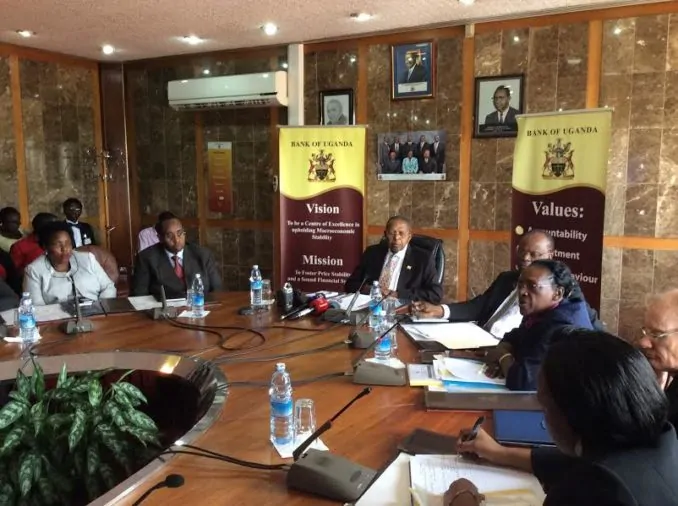By Emmanuel Tumusiime-Mutebile, Governor, Bank of Uganda
The Bank of Uganda (BoU) has recently been in the news and has attracted a lot of criticism in the media. People have a right to be critical of public institutions in a free society and I welcome comments which are constructive and which can help the BoU to improve its performance and its service to the public.
Unfortunately, a lot of the criticism aimed at the BoU is highly tendentious and is not supported by objective evidence. Many of these articles such as the recent article in the Independent magazine of March 30 – April 05, 2018, are based largely on unsubstantiated hearsay, and I feel that these should not go unchallenged not least to set the record straight.
There have been claims that the BoU or its Management is guilty of incompetence and is no longer up to the task of executing its constitutional mandate. If we are to objectively judge the competence of the BoU, we should look at how it has performed in relation to its core strategic objectives: controlling inflation and regulating the banking sector to protect depositors and the overall stability of the financial sector.
How has the BoU performed in regard to these objectives?
Let us first consider the control of inflation. The BoU has a target to hold annual core inflation to a maximum of 5% on average over three years which is normally considered to be a medium-term horizon. Over the last three years, from April 2015 to March 2018, annual core inflation has averaged 5.1%. That hardly suggests that, in terms of macroeconomic management, the BoU is incompetent.
Regarding the regulation and supervision of banks, I believe that our record speaks for itself. In the last three years, the BoU has had to intervene in three out of the 26 banks operating in Uganda during that period, two of which, Global Trust and Crane Bank, were closed (the third was temporarily taken over by the BoU because of problems in its parent bank in Kenya). In all three cases, the interventions of the BoU followed the procedures set out in the banking laws; the Financial Institutions Act. Because of prompt interventions by the BoU, customers never lost any of their deposits in any of these banks.
Nor was there any contagion to the rest of the banking industry which might have threatened the stability of the financial sector, for example there were no bank runs. Therefore, I believe that it is fair to conclude that the BoU has succeeded in delivering on its core mandate of protecting depositors and the stability of the financial system.
Indeed, BoU has been recognized by various independent continental and global entities. In my capacity as Governor, the American (USA) Biological Institute recognised me as an outstanding contributor to Uganda in 2009. In addition, I was named Central Bank Governor of the Year in Africa by the Africa Banker Magazine in 2011 and by the African Investor Group (Ai) in 2013.
There are also allegations that the Deputy Governor or other staff could have acted singlehandedly and with personal interest in the resolution of Crane Bank or in executing their technical or administrative responsibilities as designated by the Board. Such claims betray a clear lack of understanding of the established processes within the BoU and with other stakeholders within Government regarding the Bank’s mandate.
The BoU and Government broadly, has in place robust systems that ensure that we are all held to the highest possible levels of integrity. Such accountability systems include regular audits by the Internal Audit department of the BoU, Statutory audits by the Auditor General, forensic audits whenever commissioned and parliamentary inquiries which are fully complied with whenever instituted.
I would also like to refute the allegation made severally by the Independent magazine that I, my Deputy and other senior officials “fight each other”. I continue to count on the confidence and support of my Deputy and all other members of the Board of Directors, Executive Directors and staff.
Yet again, this type of unfounded speculation betrays a misunderstanding of how the BoU is actually managed. As in all well managed institutions, decisions in the BoU are not taken by individual staff on their own, but through a committee structure and set policies and procedures which have been established by the Board of Directors.
I thus categorically dismiss all contents of articles such as that published in the most recent Independent magazine with the contempt they deserve. I would hope that readers of serious journalism could expect something rather more substantial than anecdotes and speculation, but sadly media outlets such as the Independent magazine can no longer be relied on to live up to these expectations.
Finally, there are set mechanisms for addressing any contradictions within the course of our public duty. Therefore, any BoU staff acting outside these avenues and is found to be culpable in fomenting allegations, intrigue or undermining established management processes, shall be subjected to the Bank’s disciplinary proceedings.







